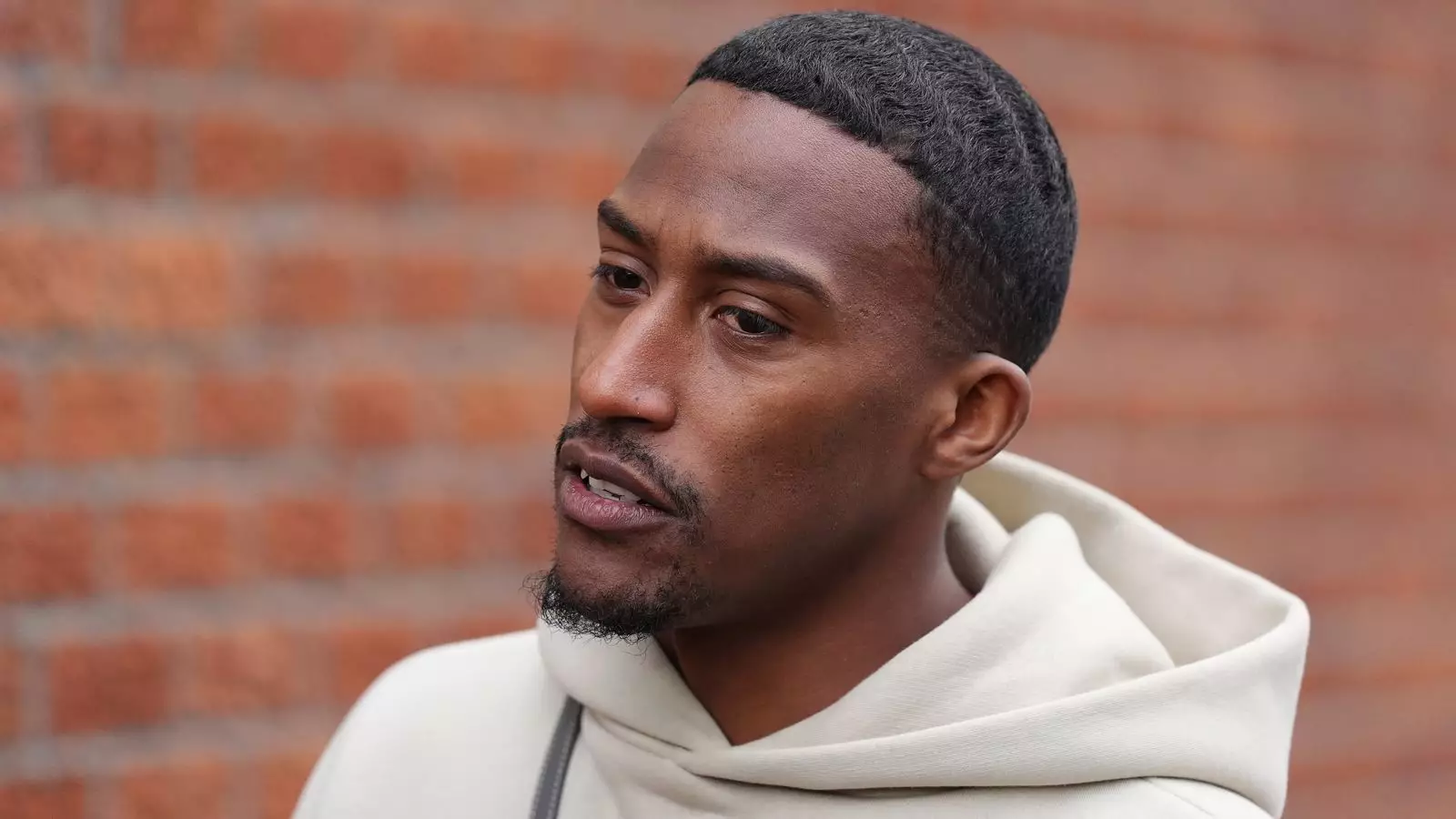In a surprising turn of events, the Football Association (FA) has decided to cancel a newly launched online cooking series featuring British YouTuber and rapper Yung Filly, amid serious allegations against him. The collaboration, which was introduced as part of a campaign aimed at promoting healthy eating among young people, has faced abrupt termination following rape allegations that surfaced regarding Yung Filly, whose real name is Andres Felipe Valencia Barrientos. The circumstances surrounding the allegations have unfolded rapidly, ultimately leading to the FA’s swift response.
The Campaign’s Intentions
“The Greater Game” campaign was intended to engage youngsters between the ages of 12 to 16 in a dialogue about healthy living and cooking. Partnering with M&S Food, the FA aimed to present Yung Filly alongside prominent England football stars like Bukayo Saka, Ezri Konsa, and Jarrod Bowen in a series titled “Freestyle Cooking.” The goal behind this initiative was to motivate the youth of Britain to explore cooking as a means to adopt improved dietary habits. By integrating well-known figures from the football community, the FA hoped to harness their influence to make healthy cooking appealing.
However, the idyllic vision for this campaign was overshadowed by the criminal allegations brought against Yung Filly before the series even took off. This highlights a crucial lesson about the potential risks involved when collaborating with public figures whose personal conduct may jeopardize a broader initiative.
Yung Filly faced serious charges in Australia after being accused of assaulting a woman in her twenties at his hotel in Perth. This accusation was not only troubling but also tainted the FA’s campaign right from the start, forcing the governing body of English football to act quickly. The allegations included four counts of sexual penetration without consent, three counts of bodily harm, and one count of impeding a person’s breathing or circulation. This spectrum of charges paints a grim picture that raises questions about the careful selection of brand ambassadors in sensitive campaigns.
The gravity of the situation likely influenced the FA’s decision, as the governing body immediately removed the promotional videos featuring Yung Filly from their platforms, aligning with the crucial need to maintain their integrity and public trust. Critics often argue that corporations and organizations sometimes lack the foresight to anticipate potentially damaging behavior from their associates; the FA’s prompt reaction may serve as a counter to this critique.
Interestingly, while the initiative was rooted in positive intentions — advocating for healthy lifestyles among the youth — the fallout from Yung Filly’s charges poses a significant hurdle. This situation raises pertinent questions about the effectiveness of celebrity endorsements in promoting social causes. When a campaign becomes tainted by the actions of its representatives, it can dilute its inherent message, thus defeating its purpose.
Moreover, the incident has implications beyond just the FA and Yung Filly. It highlights the broader issue of accountability in public spheres. Figures in positions of influence must contend with the repercussions of their actions, as they are often inextricably linked to wider communal efforts aimed at fostering change.
Looking Ahead: The Importance of Vetting Collaborations
The FA’s decision to pull the series underscores the critical nature of due diligence when engaging in partnerships for promotional campaigns. Organizations should meticulously vet potential brand ambassadors, particularly in campaigns targeting vulnerable populations like young people. There is an urgent need for frameworks that facilitate better screening processes to minimize similar occurrences in the future.
As the investigation into Yung Filly continues, the FA has made it clear that they will not tolerate any actions that undermine their mission or damage their reputation. Moving forward, the FA may consider alternative strategies or spokespersons to continue promoting healthy eating in a way that resonates positively with their young audiences without the accompanying risks of potential negative publicity.
Ultimately, in the realm of public engagement and influence, the intersection of personal actions and professional responsibilities can be fraught with complications. The FA’s prompt decision to cancel the partnership with Yung Filly sends a powerful message that integrity and ethical considerations must always prevail, especially when endeavoring to positively impact the lives of young individuals across the nation.

Leave a Reply